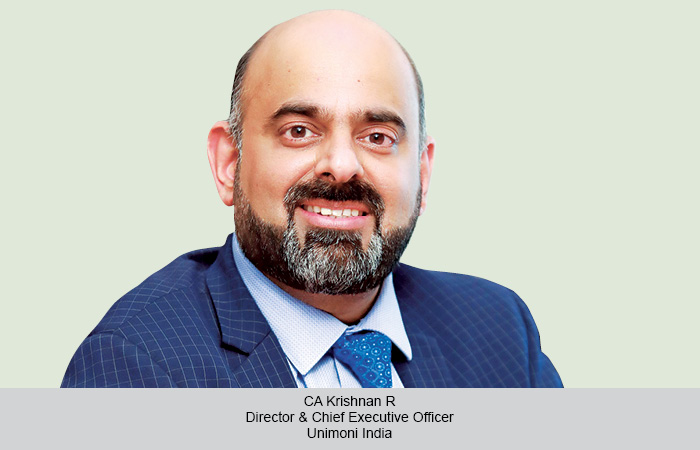Agents must transition from traditional sales channels to digital-first models, says CA Krishnan R, Director & Chief Executive Officer, Unimoni India. To stay competitive today, travel companies must adapt technological advancements. Digital transformation is no longer optional—it is essential – and it is reshaping how customers access services, he adds.
Hazel Jain
CA Krishnan R, Director & Chief Executive Officer, Unimoni India, anticipates a 12-15 per cent annual growth over the next two years, purely fuelled by demand for hyper-personalised experiences. “Think sustainable eco-tourism, immersive cultural journeys and adventure-driven itineraries. Tier II, III cities are emerging as key growth hubs, with travellers seeking curated packages that blend affordability with value,” he says.
The Indian travel industry is attracting new players, intensifying competition. In this scenario, competitive advantage will come from innovation, agility and customer-centric strategies. To achieve similar growth and stay competitive today, Krishnan shares that travel companies must embrace technological advancements.
“Digital transformation is no longer optional—it is essential. It reshapes how customers access services. With travellers becoming increasingly cost-conscious and presented with myriad choices, agencies must differentiate themselves by offering flexible booking options, personalised packages, AI-powered experiences and value additions. Strategic collaborations and partnerships can significantly expand portfolios while minimising operational costs. By leveraging such alliances, travel companies can drive sustainable profitability. By FY26, we aim to double our market share in emerging cities while maintaining a 20 per cent year-on-year growth in digital bookings,” he says.
As inventory and pricing become increasingly dynamic and demand-driven, traditional margins are likely to shrink. This will push agencies to focus on higher volumes, repeat business and long-term customer retention to drive sustainable growth. “Customers today demand quick service, intuitive platforms, 24/7 support and personalised experiences. Meeting these expectations requires robust digital infrastructure,” Krishnan says.
“Moreover, data analytics will play a pivotal role. Understanding customer preferences through data-driven insights will enable companies to tailor offerings, enhance service and make smarter business decisions. In summary, the future of travel agencies lies in embracing digital transformation, leveraging data, delivering exceptional customer experiences and staying agile in response to changing market dynamics,” he adds.
 TravTalk India Online Magazine
TravTalk India Online Magazine





